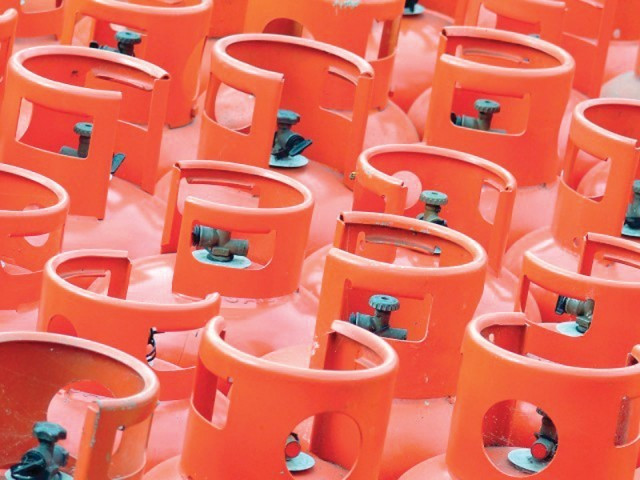Government enhances inspection fee of LPG filling stations
Industry in trouble as it is forced to pay the same fee to both explosives dept and Ogra

According to the Petroleum Division, the factors responsible for cylinder blasts included, among others, the overlapping functions of federal agencies like Ogra and the Department of Explosives. PHOTO:FILE
Earlier, the LPG industry was paying Rs20,000 for the inspection of LPG auto-filling station, Rs25,000 for the inspection of LPG plant, Rs5,000 for examining gas storage for self-consumption and Rs5,000 for monitoring gas transportation.
Now, the fee will be enhanced to Rs25000, Rs35,000, Rs15,000 and Rs7,000 respectively.
However, the industry is facing problems as it is forced to pay the same fee to two different departments.
Under the new rules framed by the Department of Explosives of the Ministry of Industries and Production, it has hired its own third-party inspectors while Ogra has different inspectors.
LPG price rises by Rs7 per kg
In this situation, the LPG industry has to pay the fee to the Ogra inspectors as well as third-party inspectors of the Explosives Department.
Before 2010, the rules of the explosives department and Ogra were similar. In that year, the department introduced the Mineral and Industrial Gases Safety Rules that empower the chief inspector of explosives to test, inspect and monitor petroleum, compressed natural gas (CNG) and LPG operations.
However, these rules sparked concerns as they were different from the regulations designed by Ogra which were amended from time to time in line with international standards.
The LPG industry also challenged the rules of the explosives department in the Lahore High Court, arguing that the regulations were discouraging new investment in the sector.
According to industry officials, these rules give discretionary powers to the chief inspector of explosives and create hurdles in the way of fresh investment because of new conditions for the capacity expansion of LPG companies like safety distance.
OGRA warns of illegal usage of LPG
"New rules are different from the safety rules drawn up by Ogra, so the industry is unable to decide whether to base its investment plans on rules of the explosives department or the conditions placed by Ogra," an official commented.
The rules of the Explosives Department overlapped and sometimes ran contrary to the CNG (Production and Marketing) Rules 1992, which were administered by the Ministry of Petroleum through Ogra.
Incidentally, the subject of explosives was on the concurrent legislative list of the Constitution which was deleted with the passage of the 18th Amendment. Consequently, the subject should no longer be administered by the federal government legally and constitutionally as it has been devolved to provinces.
The Petroleum Division also alleged that the Department of Explosives had not taken it on board in framing the new rules.
According to the division, the factors responsible for cylinder blasts included, among others, the overlapping functions of federal agencies like Ogra and the Department of Explosives.
Published in The Express Tribune, August 4th, 2018.
Like Business on Facebook, follow @TribuneBiz on Twitter to stay informed and join in the conversation.



















COMMENTS
Comments are moderated and generally will be posted if they are on-topic and not abusive.
For more information, please see our Comments FAQ